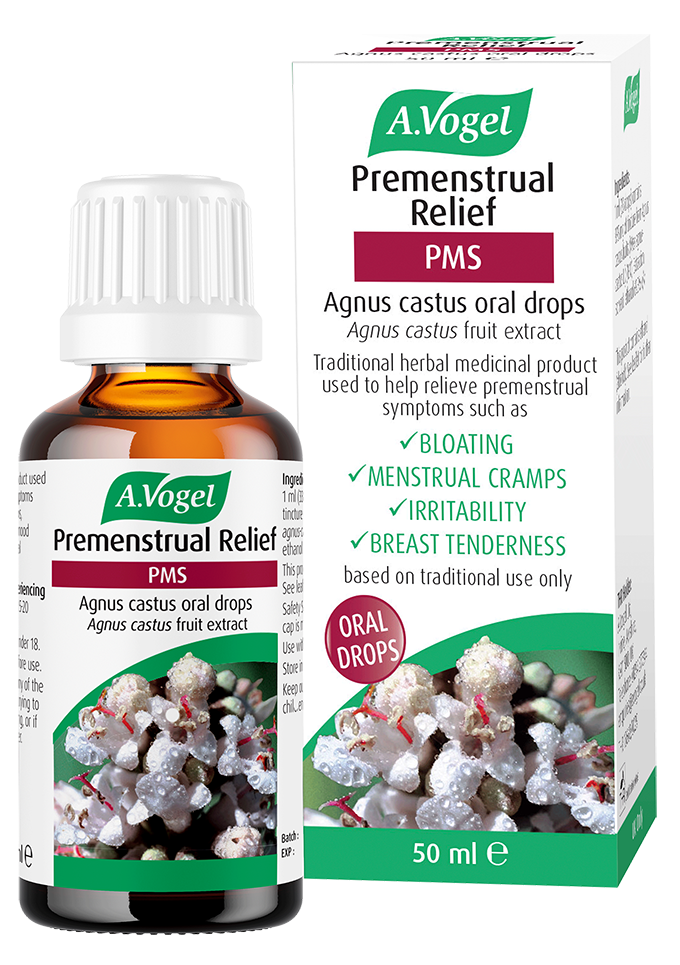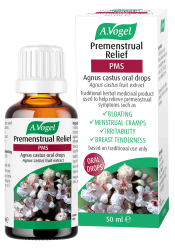An introduction to low mood and PMS
We have all experienced the ups and downs of life, and all of us will have had the feeling of being low in mood.
However, some women with PMS find that low moods or mood swings are a significant part of their monthly symptoms. These appear in the week or two before the monthly period and once menstrual bleeding starts, they become more cheerful again.
The symptom of low mood with PMS can be accompanied by other psychological symptoms such as feeling irritable, more anxious or stressed. These too resolve quickly once the period starts.
Why does PMS cause low mood?
Although our understanding of the mechanism of PMS is not complete, evidence suggests that there is a link between our mood and a chemical called serotonin found in the brain. When the levels of this chemical are low, our mood tends to plummet.
The two main female hormones, oestrogen and progesterone, have a profound influence on our psychological state. In the two weeks between ovulation and menstruation, these have a habit of fluctuating unexpectedly and may dramatically affect your emotional wellbeing if you suffer from PMS.
Other symptoms of PMS, such as period pain and bloating, can generally make us feel miserable and contribute to the feeling of being ‘sorry for yourself’.
What can I do to improve my mood?
There are a few simple steps you can take to help yourself:
- Eat a healthy balanced diet. If your body is well physically, your mental wellbeing will also feel good. A healthy diet will also help to keep your blood sugar stable and this, in turn, reduces mood swings
- Combining this with a moderate amount of exercise will also be beneficial as exercise releases endorphins into your bloodstream, lifting your mood
- Make time each day to relax. Putting aside work, chores and any worries you have each day to enjoy a bit of relaxation time, or an activity which you enjoy, will do wonders for your mood
- Try a talking therapy such as Cognitive Behaviour Therapy (CBT). Aside from the process of talking to get something off your chest, which is always helpful, CBT will also be able to change your thinking to help shed a more positive light on your outlook.
Are there herbal remedies to help me?
Herbal remedies provide a number of options:
- If your low mood is associated with other PMS symptoms, you should start off by addressing the root of the problem with Agnus castus. It is the berries of this herb that are used medicinally and because of this, the plant is also known as Chasteberry. Agnus castus can help with both the physical symptoms of PMS such as menstrual cramps, breast pain and bloating, as well as the emotional symptoms associated with stress, anxiety and low mood.
- If low mood is your main or only symptom, then you might wish to use St. John’s wort (Hypericum perforatum) – a specific remedy for people who are feeling sad, down or low in mood.
If necessary, both herbs can be used together. This is appropriate if you find that Agnus castus improves symptoms of PMS, but you are still feeling a bit low in mood. However, if you are already taking prescribed medication, oral contraceptives or HRT, check with your doctor before taking Agnus castus or St John’s Wort as these herbs may not be suitable for you. Alternatively, call our helpline.
What about medicines from my doctor?
Your doctor will usually avoid prescribing medication for your low mood, as anti-depressants can carry side-effects which may be worse than the problem itself. She may however, suggest the use of some types of oral contraceptives (the ‘birth control’ pill) to balance your hormones.
If you are concerned about your condition, seek medical advice. In addition, consult your doctor if you:
- Feel that your condition is worsening or you are finding it difficult to improve your mood
- Suspect that your condition is developing into depression
- Have thoughts of self-harm or suicide.
My PMS Journal
Keep track of your symptoms with our PMS Diary to identify patterns & help discover ways to minimise them.









